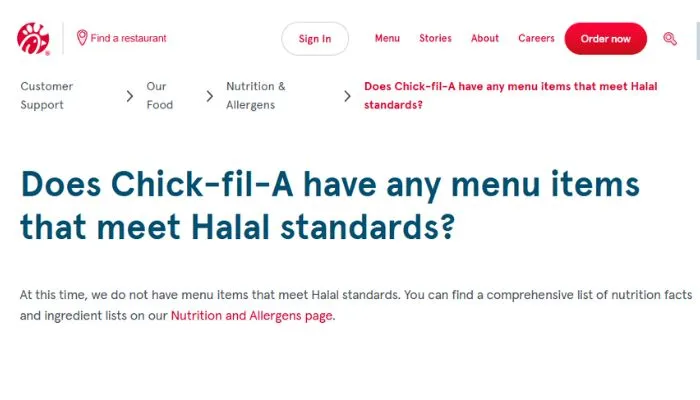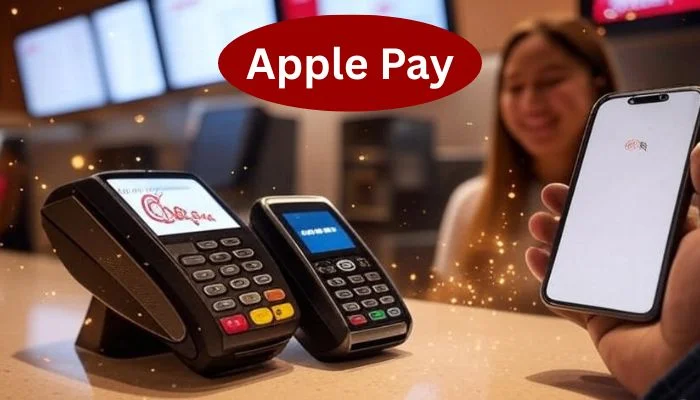Is Chick-fil-A Halal in 2025? Muslim-Friendly Menu Guide
Chick-fil-A is a fast-food favorite, known for its juicy chicken sandwiches, crispy waffle fries, and friendly service. But for Muslim customers, one big question often comes up: Is Chick-fil-A halal? If you are wondering whether you can enjoy their menu while sticking to Islamic dietary rules, you are not alone.
Is Chick-fil-A Halal or Haram?
Is Chick-fil-A halal in the USA?
No. Chick-fil-A does not offer halal-certified chicken in any U.S. location.
Is Chick-fil-A is not halal for most Muslims?
Chick-fil-A chicken, which is the star of their menu, is not certified halal, and they have said they don’t have halal certification because they serve a wide variety of customers with different needs.
There is also the issue of cross-contamination. Even if some of their chicken comes from vendors who use halal methods, it is often mixed with non-halal chicken during processing.
Plus, their kitchens aren’t set up to keep halal food completely separate from other ingredients, which is a big concern for strict halal followers.
Because of this, most Muslim scholars would say Chick-fil-A’s chicken is haram (forbidden) unless proven otherwise.
Some menu items like fruit cups, waffle fries, or salads without meat might be safe for Muslims, as they don’t involve meat. But you’ll still pay attention to which ingredients and cooking methods they use.
What Does Halal Mean?
Halal is an Arabic word that means “permissible” or “allowed” in Islam. When it comes to food, halal has specific rules based on Islamic law. Here is what makes food halal:
- The animal must be permissible: Chicken, beef, and lamb are okay, but pork is forbidden (haram).
- Slaughter process: The animal must be healthy and alive when slaughtered by a Muslim, who says a blessing in the name of Allah. Slaughter in a specific manner, which includes esearing the blood is fully drained form any allow animal list like a chicken.
- No haram ingredients: Food can not have pork, alcohol, or anything processed in a way that breaks Islamic rules.
- No cross-contamination: Halal food must be kept separate from haram items, like pork or non-halal meat, during prep and cooking.
Is Chick-fil-A Halal or Haram?
Chick-fil-A is not halal for most Muslims. Here is why:
Chick-fil-A’s chicken, which is the star of their menu, is not certified halal, and they have said they don’t have halal certification because they serve a wide variety of customers with different needs.
There is also the issue of cross-contamination. Even if some of their chicken comes from vendors who use halal methods, it is often mixed with non-halal chicken during processing.
Plus, their kitchens aren’t set up to keep halal food completely separate from other ingredients, which is a big concern for strict halal followers. Because of this, most Muslim scholars would say Chick-fil-A’s chicken is haram (forbidden) unless proven otherwise.
Some menu items like fruit cups, waffle fries, or salads without meat might be safe for Muslims, as they don’t involve meat. But you’ll still pay attention to which ingredients and cooking methods they use.

Is Chick-fil-A Sauce Halal?
Chick-fil-A’s sauces, like the classic Chick-fil-A Sauce or Polynesian, might be halal, but not sure about whether sauces are halal or not. They don’t list pork or alcohol in the ingredients:
- Chick-fil-A Sauce: Soybean oil, sugar, spices.
- Polynesian: Sugar, vinegar, fruit juice.
- Honey Mustard: Mustard, honey, oil.
But watch out: sauces could touch non-halal items or have unclear additives. Check with the restaurant or skip them if you’re unsure.
Chick-fil-A Halal Locations
Chick-fil-A does not offer Halal and certified meals at any location. Meat company suppliers may offer halal meat, but Chick-fil-A does not care about this. That’s why Chick-fil-A is not a certified halal brand.
Tips for Muslim Customers
If you’re Muslim and craving Chick-fil-A, here are some practical tips to help you navigate their menu while sticking to halal guidelines:
Stick to Plant-Based Sides:
- Order items like waffle fries, fruit cups, or side salads (no chicken). These are less likely to have haram ingredients.
- To avoid cross-contamination, you must confirm that the fries are fried in new, separate oil, and his oil has not been used for chicken
Ask Questions:
- Call or visit the restaurant and ask about their chicken suppliers, prep methods, and whether they use shared equipment for fries or salads.
- Be polite but clear about your needs; most staff are happy to help.
Check Ingredients:
- Look at the nutrition guide on Chick-fil-A’s website or ask for it in-store. Watch for things like gelatin, flavorings, or sauces that might be questionable.
- If you’re unsure, skip the sauces or bring your halal-friendly dip.
Talk to Scholars:
- If you’re on the fence about eating at Chick-fil-A, ask your imam or a trusted Islamic scholar for advice. Some Muslims are okay with eating from “People of the Book” (Christians or Jews), but others want stricter rules.
Be Cautious at Events:
- If you hear a Chick-fil-A at a convention or festival is “halal,” double-check with the staff. Rumors spread fast, and it’s easy to get the wrong info.
Halal Food Confirmation
To confirm if Chick-fil-A is halal:
- Contact Chick-fil-A: Call 1-866-232-2040 or check their website for ingredient info.
- Ask the Store: Ask managers about prep and oil use.
- Check Communities: Local Muslims might know which spots are safer.
- Look for Certification: Halal food has seals from groups like IFANCA, and Chick-fil-A doesn’t.
- Play It Safe: If you can not confirm, skip meat to avoid haram.
These steps will keep you informed.






